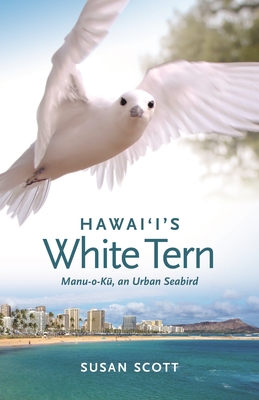
description
the world's tropics and subtropics, where they breed almost exclusively on remote islands that are free of predators like cats, dogs, rats, and mongooses. Historically, this was also true in Hawai'i, but in 1961 a pair of White Terns laid an egg and raised a chick near Hanauma Bay. Since then their numbers in the city of Honolulu have steadily increased, and in 2007 the White Tern, also known by its Hawaiian name, Manu-o-Kū, was designated the official bird of the City and County of Honolulu. Other native seabirds nest on O'ahu and its nearby islands, but the graceful White Tern is the only species known to lay its eggs in the city's nonnative trees, on window ledges, and on other man-made structures, making Honolulu unique among world cities. People who live in apartment buildings and work in office towers can watch parents brooding eggs and feeding chicks. An energetic fishing bird, the Manu-o-Kū can fly far from land in its search for fish and squid. Sailors on traditional voyaging canoes keep a close eye on them: as the sun starts to go down, the birds head home, effectively providing the bearing of nearby islands. Today, White Terns are a common sight in Honolulu, from downtown parks to Nu'uanu and Mānoa valleys to bustling Waikīkī, and the photogenic birds are gaining in popularity as their range increases. In bringing together data about White Terns from here and abroad, marine biologist Susan Scott has crafted a reliable, informative resource filled with remarkable photographs for anyone curious about Manu-o-Kū, Honolulu's official bird.
member goods
No member items were found under this heading.
Return Policy
All sales are final
Shipping
No special shipping considerations available.
Shipping fees determined at checkout.







